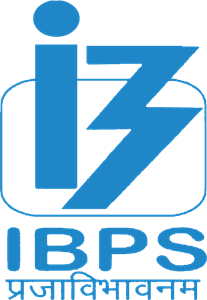
Current affairs is one of the most important topics in competitive exams, often serving as a deciding factor between success and failure. After analyzing many PYQs I have realized that every exam has 5 to 8 questions from this section. I can tell you that whether you’re preparing for banking exams, SSC, RRB, or civil services, staying updated with the latest news and events is crucial for securing a high score.
However, many students struggle to keep up with the vast amount of information available. The fast-paced nature of current events, coupled with a lack of effective study techniques, can make this task seem overwhelming.
Step 1: Build a Strong Foundation
Identify Reliable News Sources:
To understand news stories focus on editorial pages and opinion pieces for in-depth analysis. You can Pay special attention to national and international news sections. Here are some of the recommended and reputable resources.
- Newspapers: The Hindu, Indian Express
- News Websites: DD News, others
- Magazines: Frontline, Yojana
- Government Websites: Press Information Bureau (PIB)
Set Up a Dedicated Study Space:
- Choose a quiet and well-lit environment to minimize distractions.
- Keep all essential study materials like notebooks, pens, and highlighters within easy reach.
Step 2: Develop an Effective Study Routine
Current affairs is one of the most extensive topic. That’s why you need to have a realistic goals while preparing this topic. For this you need to have a great time management. I’ve talked about this topic earlier so read that article. In short, you can provide one hour in morning and 30 mins in the evening for revising topics. Here’s a overview of how you can divide preparation into chunks.
- Divide preparation timings into manageable chunks:
- Daily: Read one editorial + 2 current topics
- Weekly: Complete specific themes (e.g., Environment)
- Monthly: Revise and take mock tests
Step 3: Active Learning Techniques
One of the good qualities of a good students is that they mastered note-taking. You don’t need to discover them through trial-and-error and here I’m proving some proven techniques. Use the Cornell method to organize information with questions in the margin, main notes in a larger section, and summaries at the bottom. You can create mind maps to connect related topics visually, especially useful for linking multiple events or policies. For news articles, focus on extracting 5 key points using bullet points.
One of the best strategy I like is where you can form small study groups (3-4 people) for weekly discussions. This helps in:
- Getting different perspectives
- Filling knowledge gaps
- Practicing answer writing
- Maintaining motivation
Remember to revise your notes weekly and merge similar topics to avoid information overload.
Step 4: Revising and Retention
Let’s get this, if you’re not following revision strategy then you’re making a big mistake. You may be working hard but if you’re not revising what you have read then chances are you’re going to forget most of it. That’s why creating a schedule for revising is critical. Here’re some points on it:
- Schedule fixed revision slots:
- Weekly: Review the past 7 days’ topics
- Monthly: Revise major themes and take practice tests
- Create one-page revision notes for each topic:
- Use bullet points for key facts
- Add relevant examples
- Include important statistics
- Make complex topics memorable through mnemonics:
- VIBGYOR for rainbow colors
- SAARC for South Asian countries
- Create your own acronyms for policies and schemes
Regular revision prevents last-minute cramming and builds lasting understanding.
Step 5: Practice and Assessment
Give 100-150 Mock-tests
Lastly, if you want to improve your scores then you must focus on mock tests. As per many toppers, they have appeared in almost 100-150 mock tests before appearing for the final exams. These mock tests are especially useful for one-day exams like SSC, State PSC, etc. Here are some of the important points:
- Tackle previous year questions systematically:
- Solve one paper weekly under timed conditions
- Focus on high-scoring topics first
- Review wrong answers carefully
- Join online study communities:
- Participate in weekly discussions
- Share resources and insights
- Learn from others’ strategies
- Regular self-assessment is crucial:
- Set monthly improvement goals
- Track your mock test scores
- Note frequently missed topics
- Identify pattern of errors
Conclusion
Success in current affairs requires a strategic approach: reliable sources, effective note-taking, and regular revision. Stay consistent with your study routine and practice regularly. Remember, it’s not about studying everything, but studying smart.
Focus on quality over quantity, keep your notes organized, and maintain a positive mindset. With dedication and the right preparation strategy, you’ll excel in your exams.









